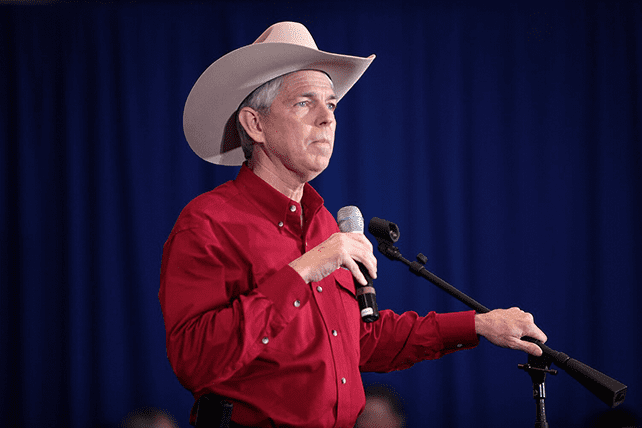In a recent talk, historian David Barton argued that the Jesus Movement of the 1970s, as well as other historic revivals, “did not impact the culture.” However, he believes the apparent revival taking place among young people today has the potential to become an “awakening.”
Barton’s remarks came in the context of a talk he gave on Monday (June 9) at the Danbury Institute’s Life and Liberty Forum in Dallas.
The Danbury Institute is “an association of churches, Christians, and organizations aligned to affirm and preserve God-given rights to life and liberty,” according to its website, and the forum was held in the run-up to the annual meeting of the Southern Baptist Convention.
RELATED: Warren Throckmorton Takes on David Barton and ‘Christian Nationalists’ Revisionist History’
Barton is a somewhat controversial figure who speaks often about the United States’ Christian heritage but whose accuracy has been called into question. In fact, concerns over historical accuracy led to Christian publisher Thomas Nelson pulling from publication Barton’s book “The Jefferson Lies: Exposing the Myths You’ve Always Believed About Thomas Jefferson.”
Barton opened his talk by describing today’s young people as living on the spiritual “leftovers” of previous generations and thus having a level of discipleship that is “ thin, precarious, and inadequate.”
Nevertheless, Barton expressed optimism that revival could be breaking out in today’s younger generation, citing stories of young athletes celebrating their Christian faith and a recent uptick in Bible sales and church attendance, particularly among young men.
But Barton asked, “Do revivals impact the culture?”
“The answer is they should,” he said. “But not always.”
“If I take you back to the revivals, particularly in the 1880s and the 1970s, they did not impact the culture,” argued Barton. “We had in the late 1880s revivals happening in New York City, Chicago, Los Angeles, etcetera—didn’t change the culture.”
RELATED: Ben Carson: US Constitution Is a ‘God-Inspired Document’
The period to which Barton was referring has been called the Third Great Awakening, which began in the 1850s and, among other things, influenced the movement to abolish slavery.

